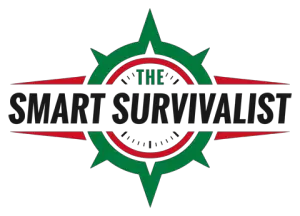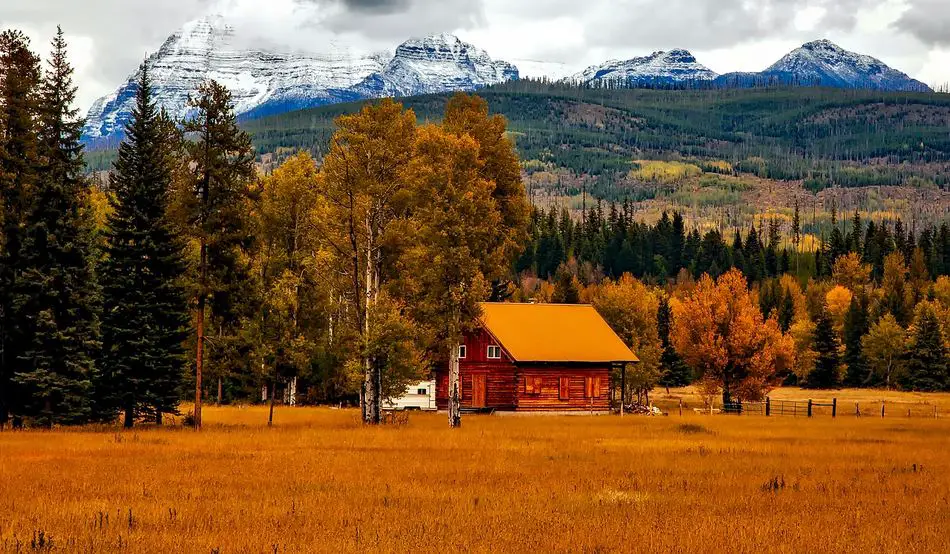Off-grid living demands careful planning and preparation. It’s more than just resigning to a cabin in the woods. You can still enjoy the fruits of civilization while being independent of local power grid, but it takes some serious work. True independence requires dedication and maybe some initial investment. After consulting with a few veteran off-gridders, I have prepared a list of items that you need to take care of before going completely off-grid.
A part of this article is summarized in the following video:
Purchase or Build an Off Grid Living Space
Shelter is one of the most basic needs; you need a roof over your head, a place to be, to sleep, to make and store food, and so on. What kind of living space should you get? It depends a lot on your budget and desires
Tiny House
A significant percentage of off grid living people prefer to buy or build a house that does not require decades of mortgage. A tiny house is a small living space, sometimes no larger than a typical living room. While it can be challenging to inhabit a tiny house, it is no more difficult than living in an RV. You will probably have to take a more minimalistic approach to your belongings. On the other hand, a tiny house can be easily relocated. You can effortlessly move it to a different land or community. A supporting and welcoming community is an important factor here, because you can’t just sit in a tiny house 24 hours a day.
Cabin
A cabin is a classic off grid dwelling, somewhat reminiscent of a tiny house, but usually more remote. Many proud cabin owners have built their houses by themselves, sometimes using the local wood material. It is a unique achievement that makes you feel like a pioneer. While some use a cabin as a place for summer vacations, a true off gridder can live there 365 days a year. Many cabin dwellers hunt, fish, farm and gather, literally living off the land. Besides building the cabin, you can also try building your own furniture, kitchen, outhouse, and other additions. It’s a true off grid experience!
Shipping Container
A quick living solution, the shipping container does not require cutting down the trees, thus it can even be greener than a cabin. They are already shaped like a house! It requires little adjustment and can be quickly transformed into a comfortable living space. They can be moved with an ease and purchased for less than a tiny house. And for those who are more creative and wish to expand, you can make an entire building by connecting or stacking several containers together. This can be a terrific solution, a part of knowing how to live off the grid with no money.
RV
A recreational vehicle can suit those who want to live on their own while not being tied to a specific spot or address. An RV can be parked, especially in a designed area, and then you drive off in the morning. You don’t pay rent or local taxes, but you do have to pay for the gas, of course. You can purchase a fully equipped and self-contained RV and start using it right away (unlike a cabin, which you need to furnish after building it). In other words, you can live full time in an RV. A good RV should include:
- Living room or dining area
- Sleeping area
- Kitchen (with a fridge and a stove)
- Toilet
- Shower
Naturally, this list is not complete, as you can turn your vehicle into a complete apartment on wheels, with all the luxuries. RVs are costly, but they are a great solution to off grid living space. Find out more about making the off-the-grid RV living possible.
It is also very important to remember that you don’t have to actually buy an RV, especially if you need it as a temporary housing solution. Renting an RV is a much cheaper and more affordable option. Based on my personal experience, I would strongly recommend checking the RVshare site, where you can find an RV that fits both your needs and your wallet.
A similar yet smaller solution is living off the grid in a van.
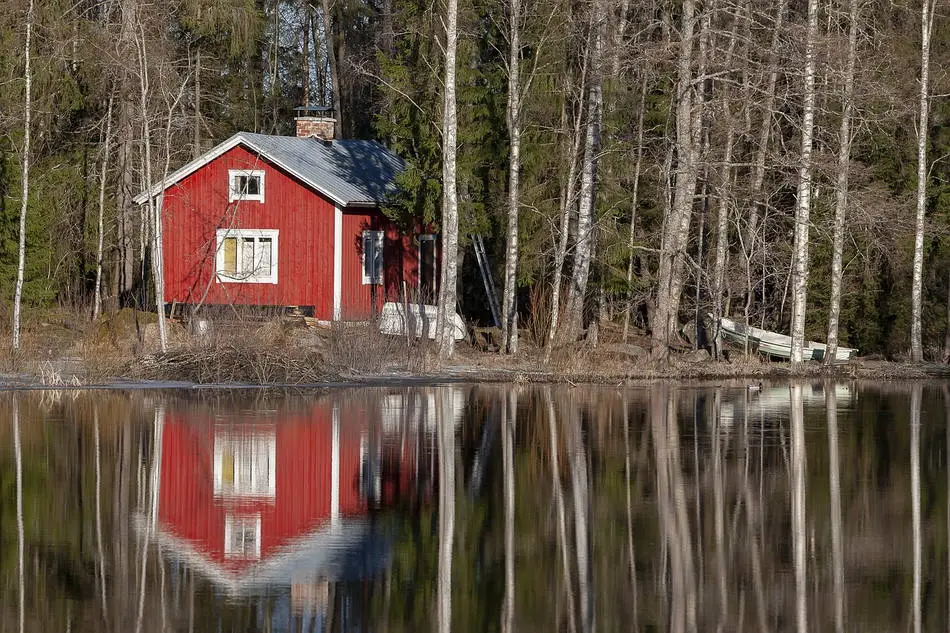
Establish a Source of Water
It goes without saying that water is another survival essential. If you don’t wish to connect to local utilities, you will need to harvest water on your own. You will need a lot of water in order to drink, bathe and cook, as well as for your farming needs. A simple and cheap solution is placing empty barrels in your backyard, collecting rainwater. A more advanced solution is designing the roof of your house in a stepped or bowl-shaped fashion, so that it collects water effortlessly.
Digging a nearby well or using an existing one is also an interesting option. You can pay someone to drill the well for you. This might set you back a few thousand dollars, but I think it’s well worth it! Some terrains are more difficult than others, so the price you will pay for drilling per a foot will vary. Drawing fresh water from a well can meet all your personal and agricultural demands.
 If you live nearby a natural water source, then you’ve hit a jackpot. It can provide you with fresh water year-round. An important thing to remember is to filter and purify your water. The best and most affordable purification device is LifeStraw Personal Water Filter, which you can get at Survival Frog. For only $19.95 you get a valuable asset, a filter that turns muddy and polluted water into pure water in mere seconds. No wonder Time Magazine called it “Invention of the Year”.
If you live nearby a natural water source, then you’ve hit a jackpot. It can provide you with fresh water year-round. An important thing to remember is to filter and purify your water. The best and most affordable purification device is LifeStraw Personal Water Filter, which you can get at Survival Frog. For only $19.95 you get a valuable asset, a filter that turns muddy and polluted water into pure water in mere seconds. No wonder Time Magazine called it “Invention of the Year”.
I also list a lot of purification methods in another article. If you live by a sea or an ocean, consider using a desalinization technology – it does not cost as much as it did in the past.
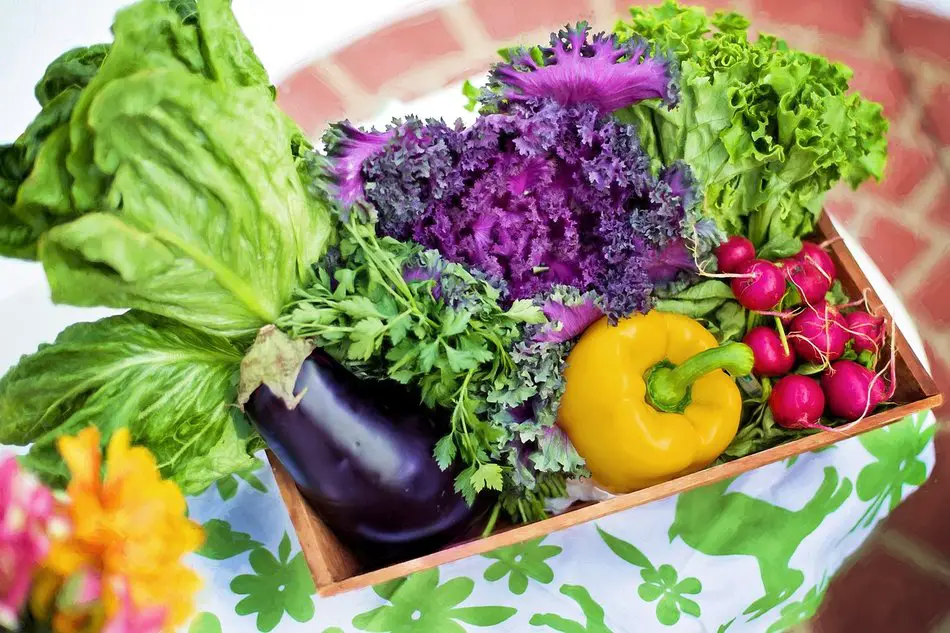
Learn to Grow Your Own Food
You have a shelter and water, so now let us eat. Our body demands energy, and the off grid living can be a great opportunity to cultivate and grow food in your personal garden. And you definitely have much more land for your disposal, compared to a measly balcony those city slickers have.
If you are not moving around, consider planting perennial plants – they will feed you for years! These can be various bushes, trees and mushroom spots, and you can harvest fruits, berries, nuts and mushrooms throughout the entire year.
And then there are dozens of delicious and nutritious vegetables that you can plant and farm, from seeds or seedlings. Green vegetables, red vegetables, leafy vegetables, root vegetables, a wholesome collection of vitamins and nutrients, clean of chemicals, straight to your table!
If you don’t intend to go 100% vegan, you can have chickens and livestock. They will provide you with eggs, meat, milk, and even wool and leather for your clothes, as well as feathers for your pillow.
Another advantage to having your own organic farm is that you can trade and exchange your produce with other members of the community. Therefore, you don’t have to grow every possible fruit, vegetable and animal in existence. Instead, grow a few and then barter for the products that your household does not have, or even for other goods and services that you need. An honest barter system, free from currency and governmental supervision.
To learn more about running your own mini-farm and living off the land, I warmly recommend getting “The Encyclopedia of Country Living: The Original Manual for Living off the Land & Doing It Yourself” from Amazon. This incredible book teaches you everything you need to know in order to run a healthy and green homestead. It includes important information about raising livestock, growing and storing food, foraging, beekeeping, and much more. With over 500 positive reviews on Amazon, this book is a must have for every off-gridder.
In addition, you can always try hunting or fishing, or even gathering berries and mushrooms in the forest. Be careful! Study what mushrooms and berries are suitable for consumption. Check what the local laws say about fishing and hunting seasons, do not unnecessarily harm the wildlife in your surrounding area.
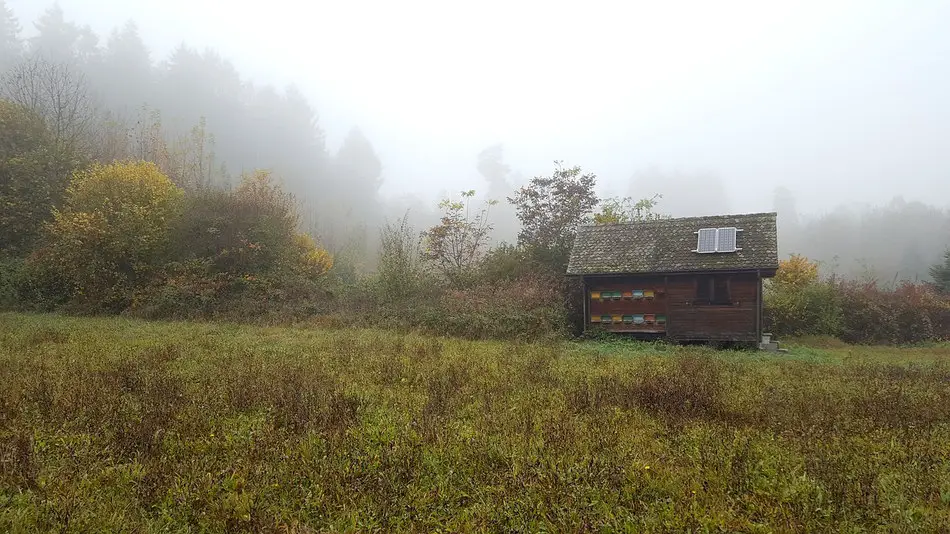
Connect to a Free Energy Source
Living off the grid usually means being independent of the power grid. You collect and produce your own energy. The most common method is the ever popular solar panels. Their installation does not cost a lot, the solar panels have become more accessible and affordable. Solar energy is free and clean, and it makes you 100% off the grid.
You will also need a battery and/or generator for the cloudy and rainy days. Additionally, if you still would like to have the grid option available, there are different types of solar systems that I have explained in another post.
Alternative energy is the very essence of eco-friendly off-grid living. Moreover, it can save you a lot of money in the long run. The solar panels continue getting cheaper, and they don’t demand frequent replacing and fixing. You can expand your solar energy intake by adding more and more panels – just be sure that your current inverter is up to the task.
There is more than one way to use solar energy. You can trap the sun rays with a thermal water heating system, which directs heat to a water tank, providing you with hot water all day long.
You can also try designing your dwelling to make the best use of the sun. It’s known as a passive solar design. Use windows, thermal chimneys and thermal masses to cool or warm your house, free of charge and of pollution.
Wind turbine is another excellent energy solution. A large enough turbine can power your entire residence. A small turbine can be utilized to pump the water from the well I’ve briefly mentioned earlier. Contact a local turbine dealer, explain your needs and get the price offer that suits you.
If you worry that neither the sun nor the wind are always at your disposal, you can enjoy the best of both worlds by installing the ECO LLC 850W Hybrid Solar-Wind Kit (available on Amazon). This excellent hybrid solution includes both 400W Wind Turbine Generator and 150W 18V Poly Solar Panel. So as far as your energy source is concerned, you are covered in every weather! You can easily install this kit on your own, and immediately start enjoying free and clean electricity.
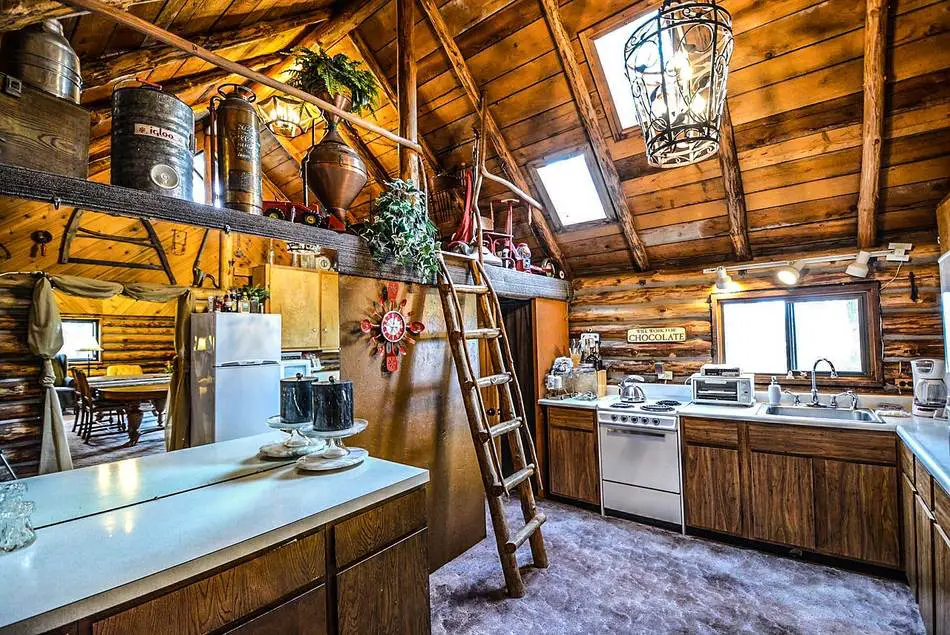
Acquire All Necessary Tools and Equipment
While it’s nearly impossible to mention all the items that you will need in your new off grid home, here are some of the essentials. The list, naturally, depends on how big your house is and what you plan to do in it and nearby (for instance, whether or not you will have a private garden).
Toolbox
Get one that neatly organizes all the essential maintenance and fixing tools. A toolbox should at least contain: Philips and flat screwdrivers, pliers (preferably with a cutter), adjustable wrench, sink wrench, and a heavy enough hammer. You will also need some supplies, such as nails, bolts, duct tape, glues and so forth. Also, if you can, get a multi-purpose tool, whose versatility earned it a spot on the crucial survival gear list.
Amazon has an incredible and highly-rated CARTMAN Orange 39-Piece Tool Set. This toolbox costs practically next to nothing, and includes an impressive number of 39 tools. Any repairs you might have around the house – this tool set will take care of them. The tools are corrosion-resistant and will serve you for many years to come.
Gardening Tools
Shovel (especially a multi-tool shovel), hoe, water hose, shears, rake, gloves, wheelbarrow. You have to own at least these to maintain a healthy and clean vegetable patch. If you have trees, you might also require pruning saw and other similar tools. Becoming a farmer on your own does require some shopping, but these tools are absolutely necessary.
Furniture
Unless you’re skilled enough to build your own furniture, you will definitely need to furnish your new abode. A table, a couple of chairs (to sit outside as well) and a bed are the bare minimum that will make you feel like you’re in an actual home. But feel free to design even further, turning your tiny house or cabin into a glorious home. Shelves, kitchen, curtains, carpets, you name it. Just because you live off the grid does not mean you have to exist like a Spartan soldier.
Here is a tour in an off grid house with custom furniture:
Kitchen and Food Storage
Whether you’re growing food or buying it at the nearby market, your house needs to be equipped with items for food preparation, consumption and preservation. I am talking about the basic utensils, like knives, forks, spoons, plates, pots. Additionally, you must acquire the food preparation tools, like spatula, whisk, tong, ladle, grater, colander, and so on. Just take a look around your ordinary kitchen, anything that you have used more than once should probably be included in your off grid home.
A special attention should be given to food storage. If your garden produces more than you can eat at the moment, your excess food should not be wasted. A small fridge powered from your generator or solar panels is probably enough. Food that does not require cold should be stored in dry, shaded places, preferably in tightly sealed containers and/or a closed cupboard.
Entertainment and Electronic Devices
This one depends on your personal taste. Bring whatever you enjoy for your pastime. It can be books or even a video game console. Unless you intend to completely resign from the mankind, bring a mobile phone (might not get reception in some areas), a laptop or at least a radio. Being off grid does not necessarily mean detaching from the modern technology, but it is not up to me to tell you how to live.
A 3D printer is worth a separate mentioning. When you’re remote from the nearest urban center, it’s almost impossible to immediately acquire a replacement for a broken part or find an item that you suddenly need. 3D printing can be an answer to such a problem, you can print a workable replacement, at least until you can shop again.
Speaking of books, make sure you bring at least 2-3 recommended survival books and guides. They offer a lot of opportunities to expand your current survival knowledge and can provide you with tons of useful information and answers.
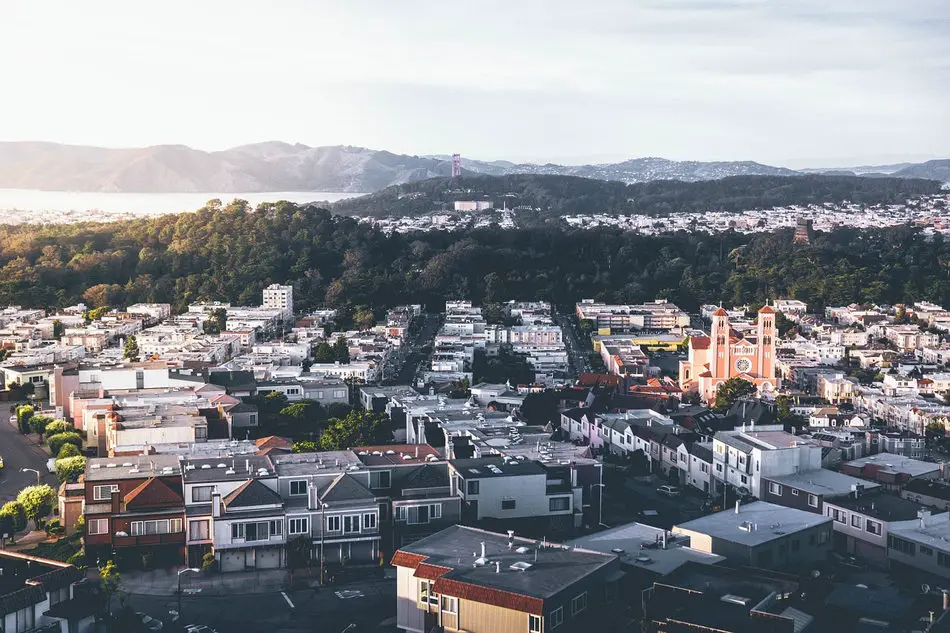
Get Informed Regarding the Local Laws and Limits
Going off the grid is not just about buying the right equipment and growing food. While it could be nice to live in an ideal world where no one bothers you, we are still inside the borders of a country and a nation, governed by people who make all sorts of laws.
So before you move to a cabin, there are certain laws and rules you need to check for that region, county and state. There are building codes that your structure must abide by. There are zoning codes that vary from municipality to municipality, so you must ensure your piece of land follows them. Finding a land that is completely free of codes and property taxes is tricky. Usually it’s a spot so removed from the civilization that it would take you hours to get supplies or human help in an emergency.
Local taxes should be taken into consideration while you’re figuring out how much budget you will need to live off the grid. I also prepared an additional article with relevant information in case you wish to live off the grid in Australia.
Since it’s too challenging (and sometimes illegal) to live off the grid inside a city, your best choice is getting a somewhat rural lot. Again, research beforehand, find out all the possible issues and legalities you are going to face. While going off the grid on a land of your own is legal, it’s still worthwhile to see what limitations the local governing body imposes on homesteads just like yours. You might eventually decide to settle somewhere else, if the local government is too restricting.
Another point to check is whether the local authorities are planning future development of the area and how that can impact you. You might enjoy a pristine piece of nature for a while, and then someone builds a polluting factory in your vicinity, or even new suburbs that stretch too close for your taste. Avoid areas with industrial zoning; see what kind of businesses have a permission to build and expand in this particular region.
Speaking of pollution and industrialization, if you plan to situate your cabin or tiny house near a stream – see what’s going on upstream. Are there factories, plants or even abandoned mines that carelessly contribute undesired chemicals to the water? This type of pollution is hard to get rid of, no matter how you filter your water.
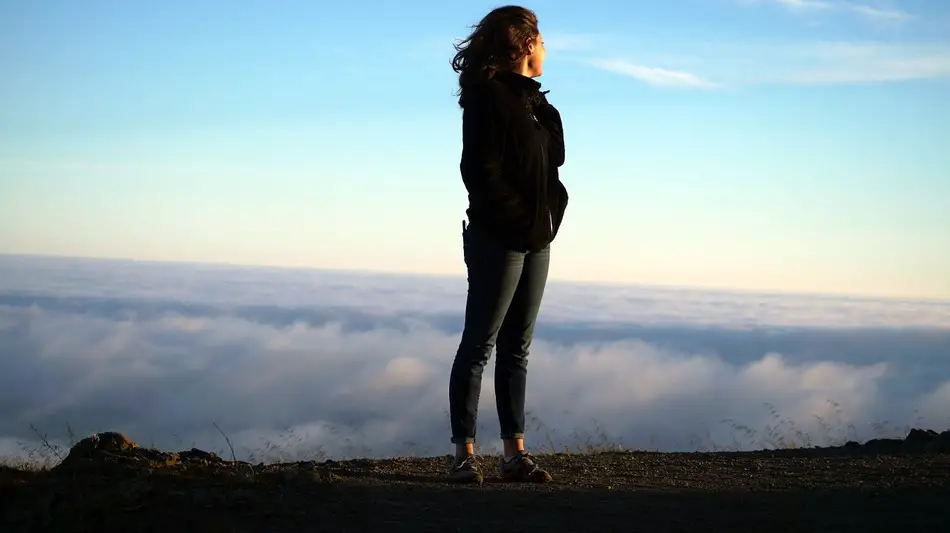
Prepare Yourself Mentally and Physically
Living off the grid is not an easy decision to make. It requires a certain determined state of mind. You will be moving from a familiar environment, away from the comfort and conveniences of modern life. Everything you will own and eat – you will need to work hard to achieve. Maybe you will join an off grid community, maybe you will live on your own. Whatever the choice is, prepare yourself internally. There are hardships and challenges to overcome, and I’m not talking just about the weather and hunting.
The off grid living is a life-changing experience. You will need to be mentally and emotionally tough. You will also need to be physically prepared, in a good health and shape. You will be doing much more physical work than you’re maybe used to. Building, designing, crafting, growing crops, hunting, installing, digging, working – it’s a day long activity that requires being fit, ready and full of energy. Make sure you are ready for whatever physical or psychological obstacles are ahead.
Final Words
So there you have it, the most complete list that hopefully answers some of the off grid questions. Living off grid is a work, but it really pays off, spiritually, psychologically and physically. I do understand that no list can 100% exhaustive, so feel free to continue your research. We have additional information on off-grid living on our website, such as a list of off-grid communities around the world that you can join. If you have more tips and ideas regarding the preparation for off grid living, please leave them in the comments below.
